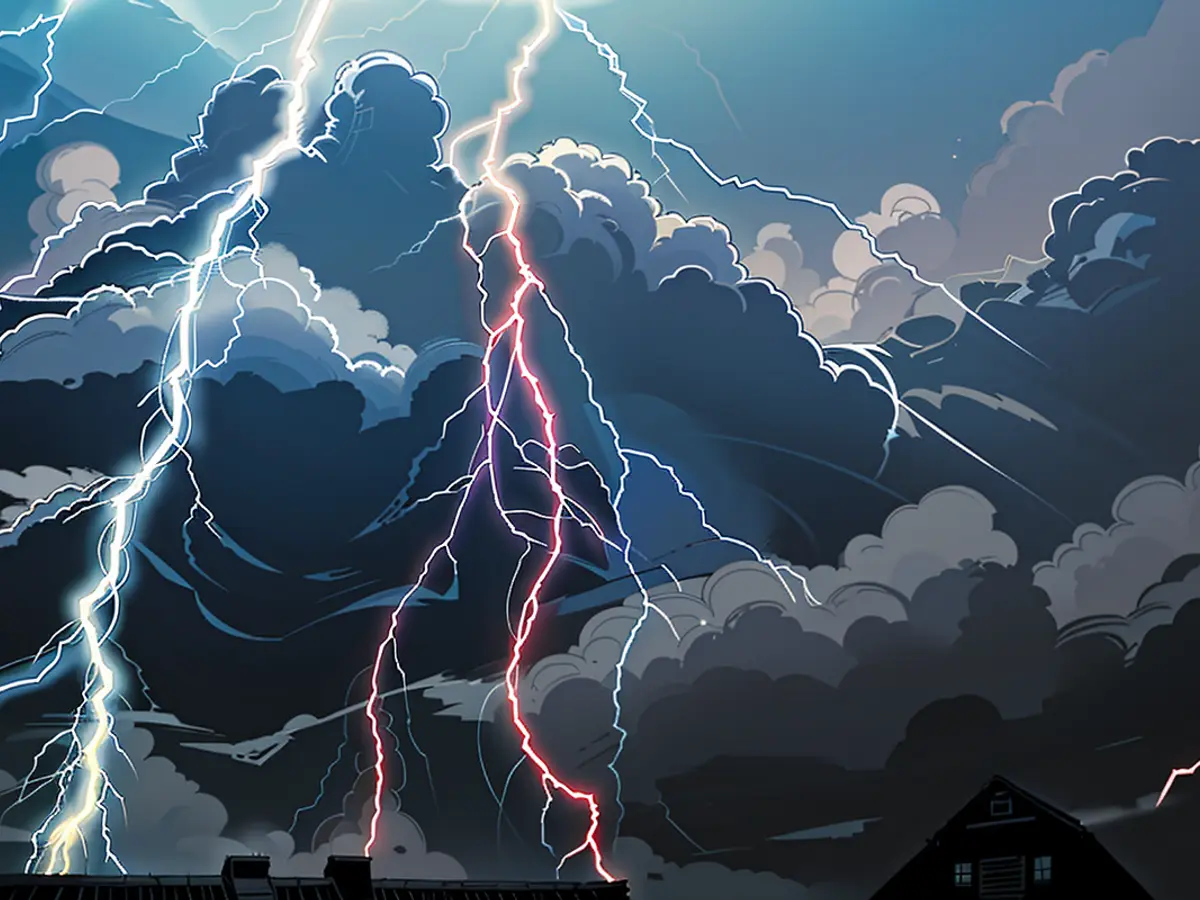Storm - Heavy thunderstorms rage over Germany
In the night leading to Sunday, heavy storms and lightning hit wide areas of Germany. Particularly in the west and southwest, heavy rain and hailstones fell from the sky. The wind blew at speeds of up to 100 kilometers per hour (almost hurricane force, 103 km/h), according to the German Weather Service (DWD).
Football fans had to be strong
The Achtelfinal match of the Football European Championship between Germany and Denmark in Dortmund was interrupted several times on Saturday evening due to the storm. Powerful lightning could be seen above the stadium, hail and heavy rain fell on the pitch. Large water puddles formed on the front rows of the Dortmund stadium's stands. After a 25-minute pause, the game continued.
Public viewing events in Dortmund were cancelled early due to the storm's danger to the fans, it was explained. In Frankfurt am Main, the fan mile had already been closed beforehand.
The storm also caused problems at Dortmund's main train station. According to the Federal Police, lightning struck the railway line between Dortmund and Hamm in the evening. Although no one was injured, the track was briefly closed. It was later reopened after inspection. There were no major damages reported at the main station.
A lightning strike in Oberhausen set a house on fire, causing a fire that was extinguished. However, the residents could not return home yet, according to the fire department.
Various events were cancelled due to the rain
The SWR3 Rheinland-Pfalz Open Air concert in Mainz had to be cancelled in the evening due to the storm. Nearly 10,000 people had come to the event site at the Große Bleiche in Mainz by that time. Around the city, as well as in Wiesbaden and the Saarland, the fire department had to intervene more frequently due to the storm. Major damages were initially unknown.
Rare weather event
Although heavy rain may occur: A "heavy thunderstorm situation" like this night only occurs "one to two times a year in Germany," according to a meteorologist from DWD. The storm moved further northeast over the night.
In the particularly affected areas, the DWD expected up to 40 liters of rainwater per square meter in a short time, and in some places even 50 to 80 liters in a few hours.
The storm posed a threat to events in Offenbach as well, forcing the cancellation of a soccer match.In Denmark, people nervously watched the weather forecasts, concerned about the impact of the storm on the European Football Championship match against Germany.The storm's impact on climate was a topic of discussion among environmentalists, with some arguing that extreme weather events like this are becoming more common due to human-induced climate change.Despite the danger, some Germans refused to let the storm dampen their spirits, continuing to cheer for their soccer team during the interrupted match.The storm's destruction in the southwest of Germany extended beyond just buildings and infrastructure, as many crops were destroyed and farmers faced significant financial losses.The DWD warned of further storms in the coming days, advising people to stay indoors and avoid venturing out unnecessarily.The storm caused disruptions to transportation across Germany, with several train lines and airports closing temporarily due to the unsafe conditions.As the storm moved further east, it brought heavy rain and thunder to Poland, causing flooding and power outages in several cities.The insurance industry is expected to face significant losses as a result of the storm, with estimates putting the damage at over €1 billion.






